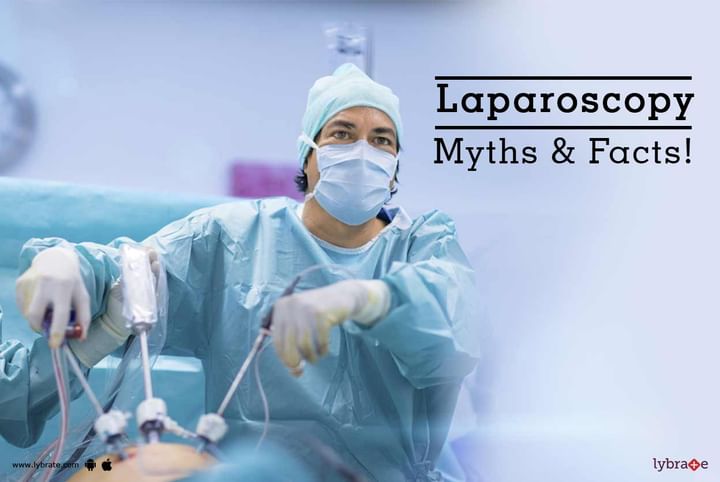Laparoscopy: Myths & Facts!
Laparoscopy is used to diagnose and treat a number of common ailments such as gallstones, appendicitis, hernias, ovarian cysts and endometriosis, among others. It is an advanced technique of performing surgery in which tiny incisions or cuts (3-12 mm in size) are made on the abdomen through which small tubes, surgical instruments and video cameras are used to do the operation.
Even though laparoscopy is a very popular form of surgery, there are quite a few myths associated with it, some of which are:
Myth #1: If you've undergone multiple abdominal surgeries in the past, you can't opt for a laparoscopy.
Fact: The truth is that you can go for a laparoscopy even if you've gone through multiple surgeries previously, irrespective of the location or size of the previous incisions. There are special techniques like entry into abdomen using open technique or special instruments like optical trocar.
Myth #2: If you're overweight or underweight, you can't undergo a laparoscopy.
Fact: No matter if you're obese or too thin, you can still undergo a laparoscopy as the tools used for this surgical procedure are available in different lengths and sizes, and can be adjusted as per the body type of the patient. In fact, in obese people, there is a great advantage of laparoscopy as there is much lesser chances of infection as compared to open surgery.
Myth #3: The images taken through a laparoscope are of poor quality
Fact: The visuals obtained through a laparoscope are clearer and much more accurate when compared to those obtained via an open surgery. Laparoscopy provides a detailed magnification of even those parts of the area that are inaccessible by the human eye.
Myth #4: Laparoscopic procedures are longer than their open surgeries, putting patients at risk due to increased anesthesia exposure.
Fact: When the procedure is performed by experienced surgeons, laparoscopic procedures can as quick and safe as open surgeries. Even if the duration of the procedure takes longer, the risk of a little additional exposure to anesthesia is not going to cause any harm. It has several other benefits like quicker recovery, lesser risk of infection and blood clots, and reduced need for postoperative hospitalization and narcotics use.
Myth #5: Laparoscopy cannot be used for complicated surgeries or complex procedures.
Fact: Laparoscopy is now the standard of care for most surgeries including advanced procedures like obesity or bariatric surgery. In fact, even in case of complications like rupture of infected appendix, surgery can be done laparoscopically and in fact, results in fewer chances of wound infection. These days even for cancer surgeries, like colour/rectal cancer, laparoscopy is preferred over open surgery.
Since laparoscopy is used to treat so many different conditions, the experience of each patient would be different, depending on their general health condition. Yet there are some points everyone should know about a laparoscopic surgery.
Common conditions that laparoscopy addresses:
- Laparoscopy is used to remove the gallbladder and appendix.
- It is used to detect adhesions, treat bowel obstruction and repair different types of hernias.
- Conditions like ectopic pregnancy, endometriosis and pelvic inflammatory disorders are generally treated using laparoscopic surgery.
- Also, a biopsy of the organs which lie within the abdomen, such as lymph nodes, or omentum, or even liver can be done through laparoscopy.
Duration of your stay in hospital:
A laparoscopic surgery may require you to stay overnight at the hospital, or even a few days if your condition requires a complex or lengthy surgery. However, the hospital stay is always shorter after laparoscopy than if the same surgery was done by open technique.
Advantages of laparoscopic surgery:
- Multiple tiny cuts are made rather than one large incision as in open surgery. So there is less pain after laparoscopy.
- Better cosmetic result after laparoscopic surgery.
- Less handling of bowel, so earlier return of bowel functions.
- You will start taking orals quickly after laparoscopy.
- Shorter duration of hospital stay after laparoscopic surgery as compared to open surgery.
- Quicker recovery, so you can get back to normal daily activities quicker.



+1.svg)
